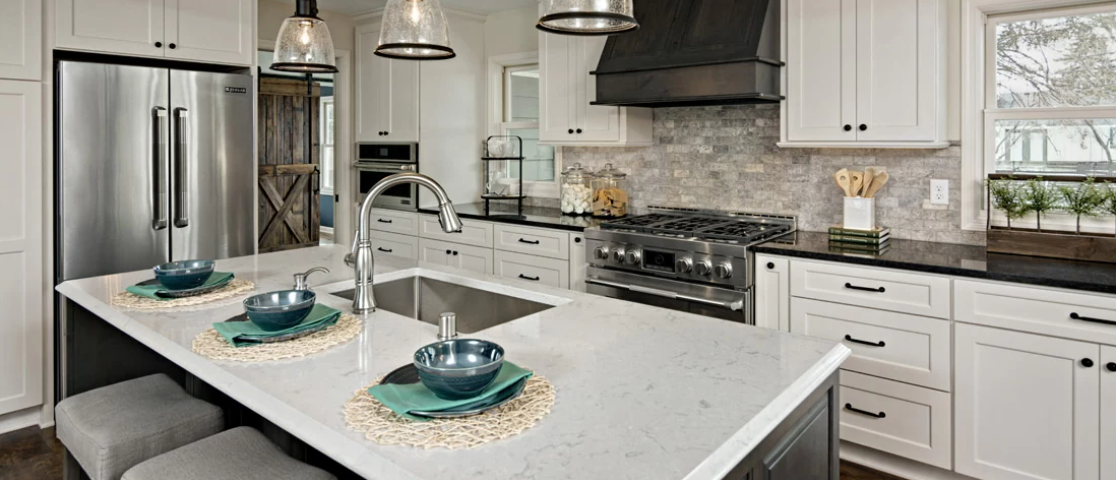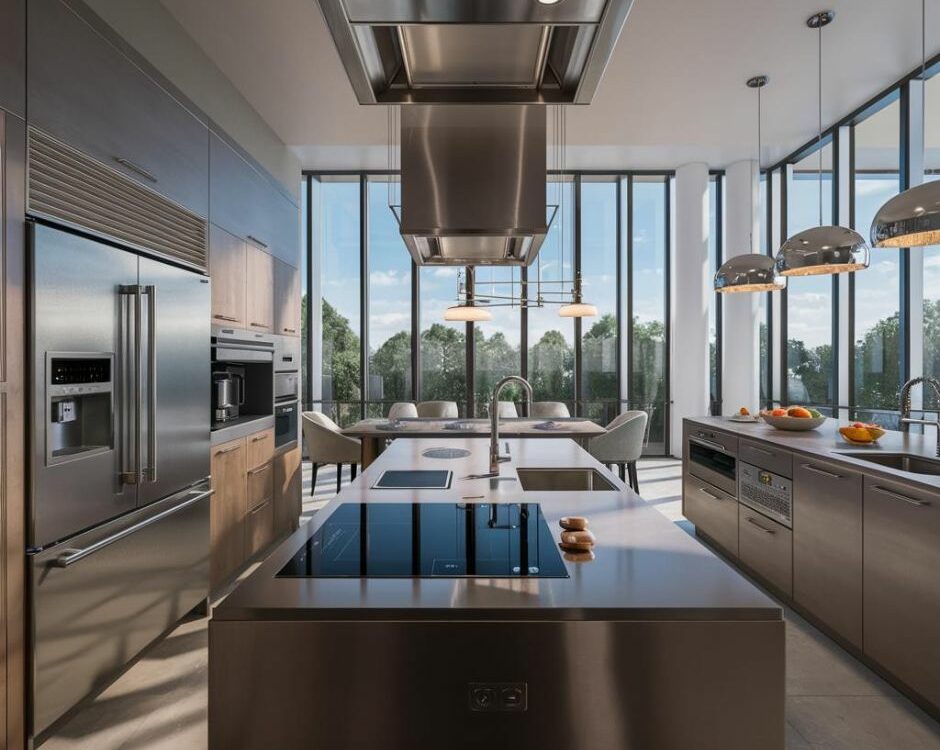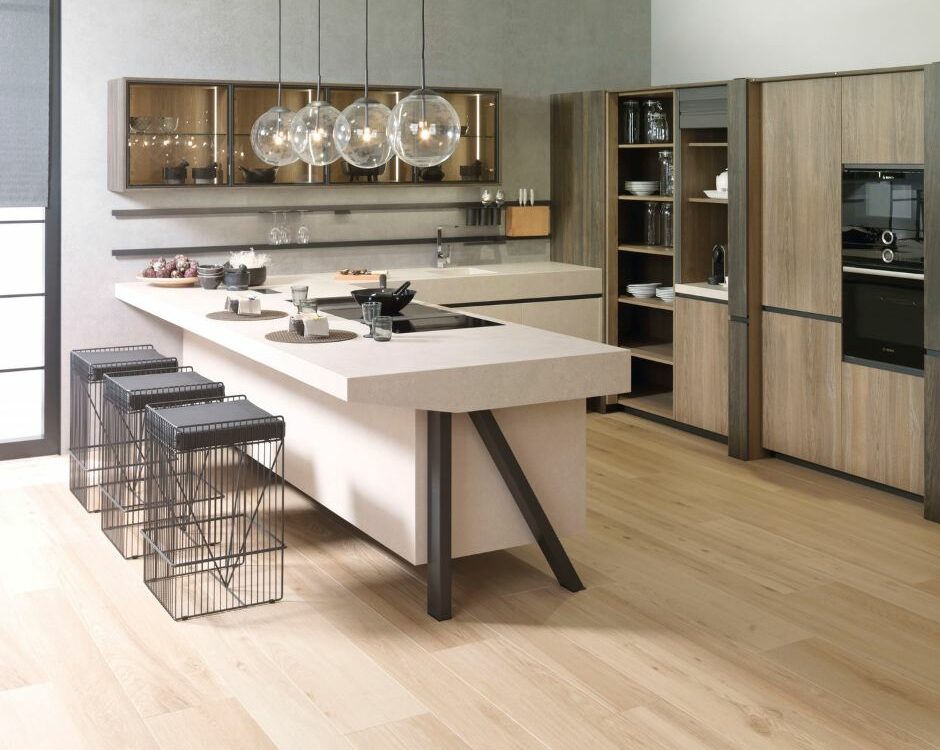
Renew, Reuse, Remodel: The Ultimate Guide To Eco-Friendly Kitchen Renovation
November 15, 2023
Architectural Marvels: Design Inspirations For Your Room Addition Project
November 15, 2023The quest for sustainability has become a significant aspect of modern living, permeating every facet including the realm of home renovation.
A kitchen remodel, in particular, presents an excellent opportunity to incorporate eco-friendly elements and embark on a path towards zero-waste living. By implementing sustainable practices such as choosing environmentally-friendly materials and recycling old appliances, homeowners can significantly reduce their carbon footprint while simultaneously creating a space that is both aesthetically pleasing and functional.
Moreover, this approach aligns with the growing trend of mindful consumption which advocates for responsible use of resources. It aims to not only minimize environmental impact but also foster a sense of community by demonstrating that each individual’s choices contribute to larger global efforts towards sustainability.
In essence, adopting green practices in kitchen remodeling serves dual purposes; it caters to personal design preferences while promoting collective responsibility towards our shared environment.
Selecting Sustainable Materials
Opting for sustainable materials in a kitchen remodel, such as reclaimed wood or recycled glass countertops, not only contributes to the reduction of environmental damage but also adds an aesthetically appealing and unique touch to your cooking space.
The use of these eco-friendly alternatives can significantly decrease the amount of new resources required during construction, thereby lessening the overall carbon footprint. For instance, recycled glass countertops are manufactured from post-consumer waste which would otherwise fill up landfills. Similarly, using reclaimed wood reduces deforestation rates by repurposing existing timber instead of requiring fresh lumber.
Moreover, these materials offer a distinct blend of durability and elegance that enhances the visual appeal and longevity of your kitchen.
In addition to their ecological benefits, sustainable materials are a practical choice for kitchen remodels due to their durability and versatility. Reclaimed wood possesses an inherent resilience against wear and tear owing to its age and previous uses while recycled glass countertops are both heat-resistant and non-porous making them resistant to stains and bacteria growth – a valuable attribute in any cooking environment.
Furthermore, selecting these sustainable options can provide a sense of belonging within the global community committed towards conservation efforts. By choosing eco-friendly alternatives for kitchen renovations, individuals can contribute towards reducing environmental degradation while fostering a senseively crafted aesthetic that aligns with contemporary design trends.
Recycling and Reusing Old Appliances
Harnessing the potential of old appliances instead of consigning them to a landfill represents an innovative approach towards sustainability, demonstrating the power of recycling and reusing in our daily lives.
Alterations to existing kitchen appliances can drastically reduce waste generation while also saving homeowners money. Recycling is not only about reducing waste but also pertains to finding new life for old items thereby contributing significantly towards a zero-waste kitchen remodel. The process effectively mitigates the environmental impact associated with disposal and new production, hence promoting the ethos of sustainable living.
In order to recycle or reuse old appliances efficiently, consider these practical steps:
1. Donation: Often, used appliances that are still functional can be donated to individuals or organizations in need. This reduces the demand for new products and extends the lifespan of existing ones.
2. Recycling Programs: Many manufacturers offer take-back programs which allow customers to return their old appliances when purchasing a new one. These programs ensure proper recycling processes are followed.
3. Upcycling: Creative repurposing or upcycling can transform unwanted items into unique household features, such as converting an old refrigerator into a storage unit.
4. Professional Recycling Services: Some materials within appliances like refrigerants or mercury may be harmful if released into the environment; professional recyclers have necessary training and equipment to handle these safely.
By adopting these strategies, every individual contributes towards creating an eco-friendly lifestyle that aligns with modern expectations of conservation and sustainability while fostering a sense of belonging within this global community committed to preserving our planet’s resources for future generations.




